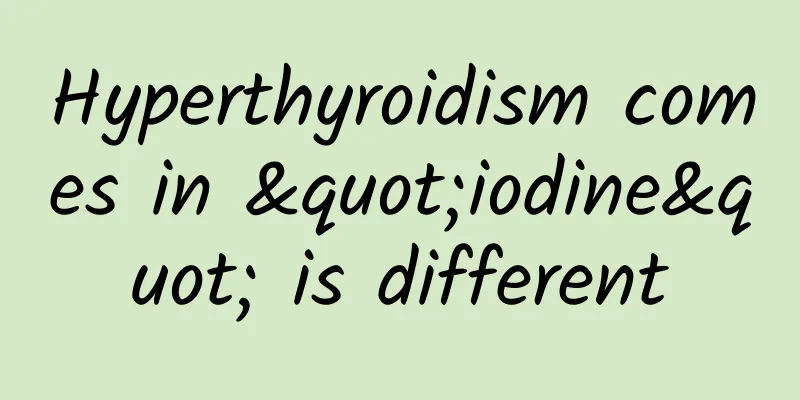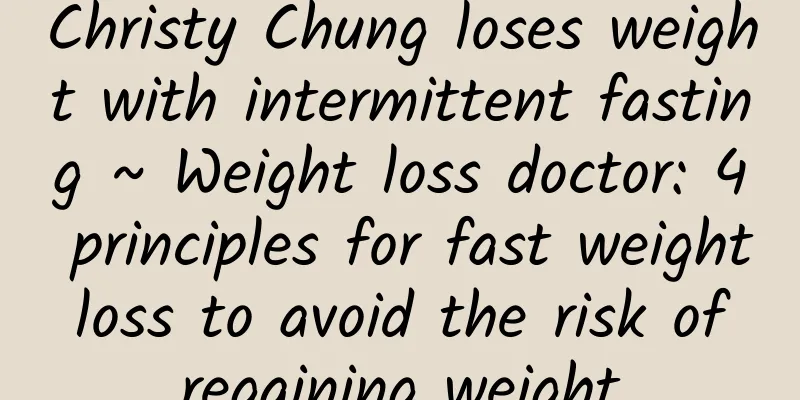Hyperthyroidism comes in "iodine" is different

|
Clinically, it is common for women to suffer from hyperthyroidism. Patients are prone to symptoms such as palpitations, hand tremors, fever, weight loss, increased bowel movements, insomnia, etc., which cause a lot of trouble in life. In particular, some patients need to pay special attention to iodine intake in their diet and should avoid excessive intake, but often do not know how to do it. Nutritionist Lin Yifen said that patients with hyperthyroidism should pay attention to the amount of iodine they consume in their daily diet. (Photo provided by Taipei City United Hospital) Lin Yi-fen, director of the nutrition department at the Heping Women's and Children's Hospital of Taipei City United Hospital, pointed out that hyperthyroidism is more common in women. The causes of this disease include diffuse goiter causing hyperthyroidism and multiple thyroid nodules causing hyperthyroidism. Others include single nodules, thyroiditis, excessive secretion of thyroid-stimulating hormone by pituitary adenomas, excessive stress that stimulates thyroid hormone secretion to hyperactivity, and excessive iodine intake. After the current domestic policy of adding potassium iodate to table salt, the problem of nutritional iodine deficiency has rarely occurred. However, clinically, we often encounter cases where people need to pay special attention to iodine intake in their diet due to problems such as hyperthyroidism and thyroid cancer. Lin Yifen said that the iodine content in food varies greatly depending on the iodine content in the soil and water, and is usually related to the prevalence of iodine deficiency and the iodine content in the local soil. The iodine in the body mainly comes from food and iodine added to salt. The iodine intake from the diet is about 30~160μg. The current daily salt intake of Chinese people is 9~12 grams, that is, each gram provides 20μg of iodine. Seasoning salt provides about 180μg (estimated at 60% absorption rate). If calculated based on the intake of adults, there should be no problem of deficiency. Those who need to limit iodine intake in their diet are reminded to avoid eating kelp and seaweed with high iodine content, and reduce the frequency of seafood and shellfish intake. In addition, patients who eat out frequently on a daily basis are reminded that in order to reduce excessive iodine intake, meals can be rinsed before consumption, and soups and concentrated kelp seasonings should be avoided. Lin Yifen emphasized that if the iodine intake in the diet needs to be specially restricted, you can choose table salt without added iodine, such as coarse salt, sea salt, rock salt, etc., and reduce the consumption of kelp, seaweed foods, and concentrated seasonings. For those who do not have thyroid problems, there is no need to restrict their diet deliberately to avoid iodine deficiency. 【Small dictionary】Hyperthyroidism Commonly known as "big neck", it is an endocrine disease caused by excessive secretion of thyroid hormones. The most common cause is Graves' disease or Basedow's disease, accounting for more than 90%, which is an autoimmune disease. TSH receptor antibodies can be detected in the blood of most patients. These antibodies stimulate the thyroid gland to produce excessive amounts of hormones. Typical symptoms include weight loss, intolerance to heat, sweating, hand tremors, anxiety and irritability, increased bowel movement, decreased menstruation, swollen neck, and some people may also have bulging eyes and retracted eyelids.
|
<<: Men also suffer from osteoporosis but are not aware of it
>>: Fat man's troubles! Chinese medicine health and weight loss method revealed
Recommend
Dysmenorrhea usually causes the following hazards:
Many women experience dysmenorrhea during their m...
Key ways to prevent ectopic pregnancy in life
The prevention of ectopic pregnancy is the key to...
What should be paid attention to during the treatment of cervical hypertrophy?
What are the precautions for the treatment of cer...
Combined with the examination of adnexitis, the patient's condition can be detected as early as possible
Adnexitis is very harmful. Once it occurs, it wil...
How to tell if you have pelvic peritonitis
As we all know, female gynecological diseases are...
Ten "Rainbow New Year Dishes" rich in lutein and anthocyanins, helping the whole family to develop immunity!
The Lunar New Year is coming soon. It would be gr...
What are the chances of pregnancy with Bartholinitis?
Nowadays, Bartholinitis has gradually become a co...
Three advantages of laparoscopic surgery for ovarian cysts
With the advancement of medical technology, the s...
What are the common diseases of women of childbearing age? Will rough sex aggravate cervicitis?
Cervicitis is a common disease in women of childb...
The main causes of chronic adnexitis in women
Since chronic adnexitis is very harmful to women&...
What should I check at the hospital for irregular menstruation?
What should I check at the hospital for irregular...
Are the symptoms of uterine fibroids obvious? Can uterine fibroids cause menstrual abnormalities?
In today's society, there are more and more d...
How to prevent pelvic inflammatory disease after abortion
How to prevent pelvic inflammatory disease after ...
Female friends: How should you take good care of pelvic inflammatory disease?
Many female friends pay great attention to their ...
Detailed analysis of the four major symptoms of irregular menstruation
Irregular menstruation is a common disease among ...









